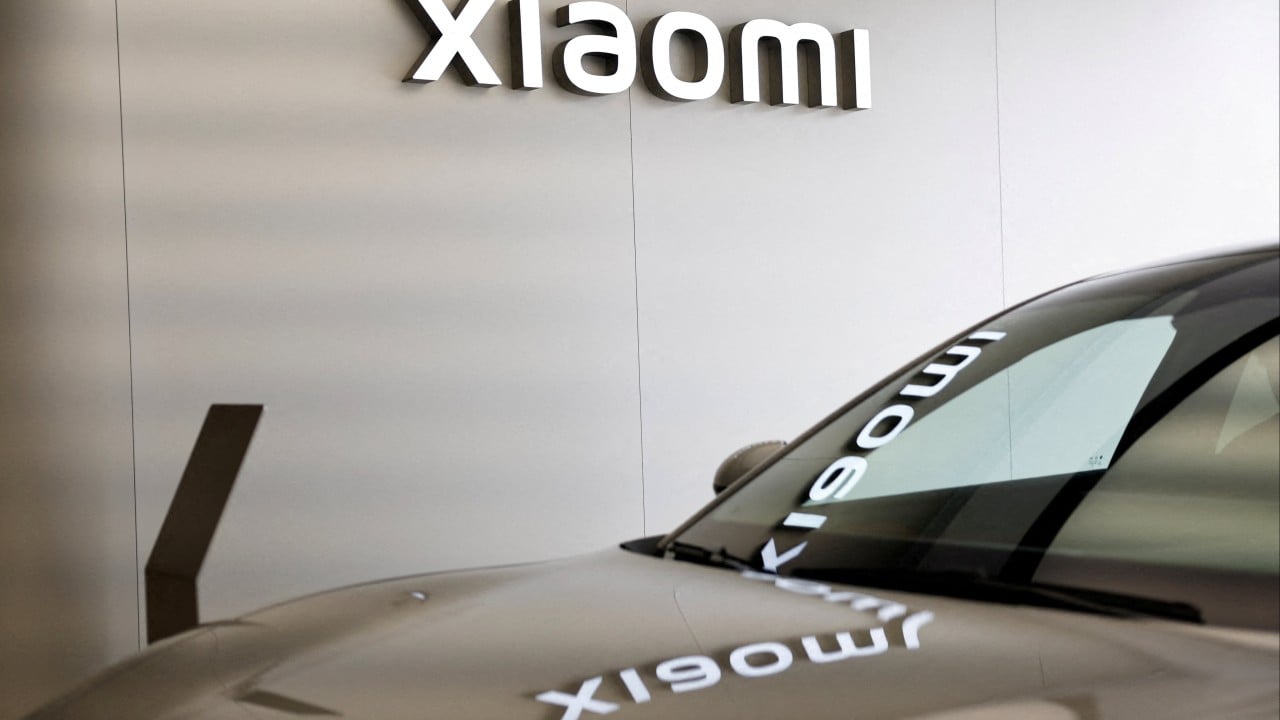Chinese smartphone maker Xiaomi reported 6.4 billion yuan (US$897.8 million) in revenue from its electric vehicle (EV) business, as it ramps up production and deliveries to meet aggressive targets for its new SU7 sedan.
The Beijing based company saw second-quarter revenue rise 32 per cent year on year to 88.9 billion yuan amid strong smartphone sales and faster EV deliveries. Profits were up 38.3 per cent year on year to 5.1 billion yuan, according to the company’s financial statement released after market close on Wednesday.
Xiaomi shares closed down 0.9 per cent in Hong Kong on Wednesday to HK$17.52 (US$2.50).
Xiaomi delivered 27,307 SU7s in the three months through June, with the EV business generating a net loss of 1.8 billion yuan. However, the company said the business has a “healthy gross profit margin” of 15 per cent, which it attributed to higher than expected deliveries. Xiaomi president Lu Weibing said during an earnings press conference that the company’s monthly deliveries reached around 10,000 in June after ramping up capacity
This is the first time Xiaomi has disclosed the financials of its EV unit since launching the SU7 in March, when founder and CEO Lei Jun said the company would be selling the cars at a loss. The company’s aggressive pricing comes amid intensified competition and a saturated EV market. The business unit lost an average of 65,900 yuan per car delivered in the June quarter.
Lu attributed the loss to Xiaomi’s limited EV market share and the high development cost of its first car.
“Our [EV business] size remains relatively small and car manufacturing is a typical economies-of-scale manufacturing industry,” Lu said during the press conference.
Lu added that the company aims to hit its annual EV delivery target of 100,000 SU7s by November and plans to expand its EV retail network to 100 centres by the end of the year, up from 87 locations in 30 cities in June.
As of the end of July, Xiaomi had delivered about 35,688 SU7s. Xiaomi’s EV factory in Beijing started double shifts in June to crank up production to reach 120,000 units by the end of the year – the high end of its delivery target.
Xiaomi, which has been the third-largest smartphone maker globally for 16 consecutive quarters, saw handset shipments grow 28 per cent in the June quarter to 42.2 million units. Smartphone revenue grew 27.1 per cent year on year to 46.5 billion yuan for the period.
In the first half, Xiaomi shipped a total of 83 million handsets, pulling in 93 billion yuan in revenue.


